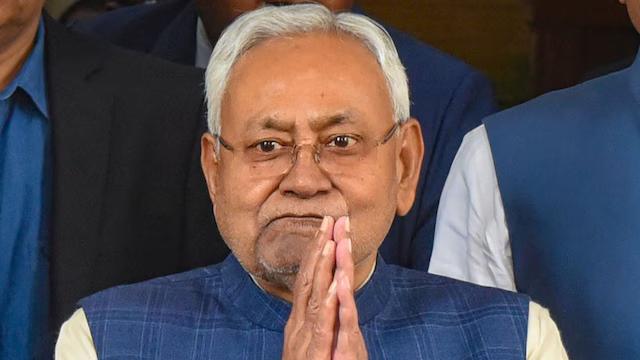
Bihar Forms Commission for Development of Upper Castes
In a move that has sparked controversy and debate, the Nitish Kumar-led Bihar government has constituted a commission for the development of upper castes. The announcement was made on Thursday, with the commission’s chairperson being BJP leader Mahachandra Prasad Singh and JD(U)’s national spokesperson Rajiv Ranjan Prasad as its vice-chairman. This decision comes at a time when the state is just months away from hosting its Assembly elections.
The commission, which is expected to work towards improving the socio-economic status of upper castes, has raised eyebrows among many who view it as a move to appease a particular section of society. The decision has also drawn criticism from opposition parties, who have accused the government of diverting attention from the real issues affecting the state.
According to the statement released by the government, the commission will work towards identifying the needs and aspirations of upper castes and provide recommendations to the government for their development. The commission will also assess the existing schemes and programs aimed at the development of upper castes and suggest modifications to make them more effective.
While the government has justified the move by saying that it is aimed at ensuring social justice and equality, many have questioned the need for a separate commission for upper castes. They argue that the government should focus on addressing the broader issues affecting the state, including poverty, unemployment, and lack of infrastructure, rather than creating a separate entity for a particular section of society.
The opposition parties have also criticized the move, with the Rashtriya Janata Dal (RJD) accusing the government of trying to divide the society along caste lines. “The government is trying to create a rift in the society by dividing people on the basis of castes,” said RJD spokesperson Mishaal Rahmani. “This move is a clear attempt to appease a particular section of society and divert attention from the real issues affecting the state.”
The Janata Dal (United) has also come under criticism for its decision to appoint a national spokesperson as the vice-chairman of the commission. “The JD(U) is known for its anti-upper caste stance, and this move is a clear attempt to whitewash its image,” said BJP leader Sushil Kumar Modi. “The government should focus on addressing the broader issues affecting the state rather than trying to create a separate entity for a particular section of society.”
Despite the criticisms, the government has defended its decision, saying that it is aimed at ensuring social justice and equality. “The commission will work towards identifying the needs and aspirations of upper castes and provide recommendations to the government for their development,” said Bihar Minister for Social Welfare and SC/ST Welfare Ashok Choudhary. “The government is committed to ensuring social justice and equality for all sections of society, and this move is a step towards achieving that goal.”
The decision has also sparked debate among social activists and scholars, with some arguing that it is a step towards acknowledging the historical marginalization of upper castes. “Upper castes have been historically marginalized and neglected, and this move is a step towards acknowledging their contribution to the society,” said Dr. Rajendra Kumar, a social activist. “The government should focus on addressing the broader issues affecting the state, including poverty, unemployment, and lack of infrastructure, rather than trying to create a separate entity for a particular section of society.”
In conclusion, the decision to form a commission for the development of upper castes has sparked controversy and debate in Bihar. While the government has justified the move by saying that it is aimed at ensuring social justice and equality, many have questioned the need for a separate commission for upper castes. The decision has also drawn criticism from opposition parties, who have accused the government of diverting attention from the real issues affecting the state. As the state prepares for its Assembly elections, it remains to be seen how this move will impact the electoral landscape.






